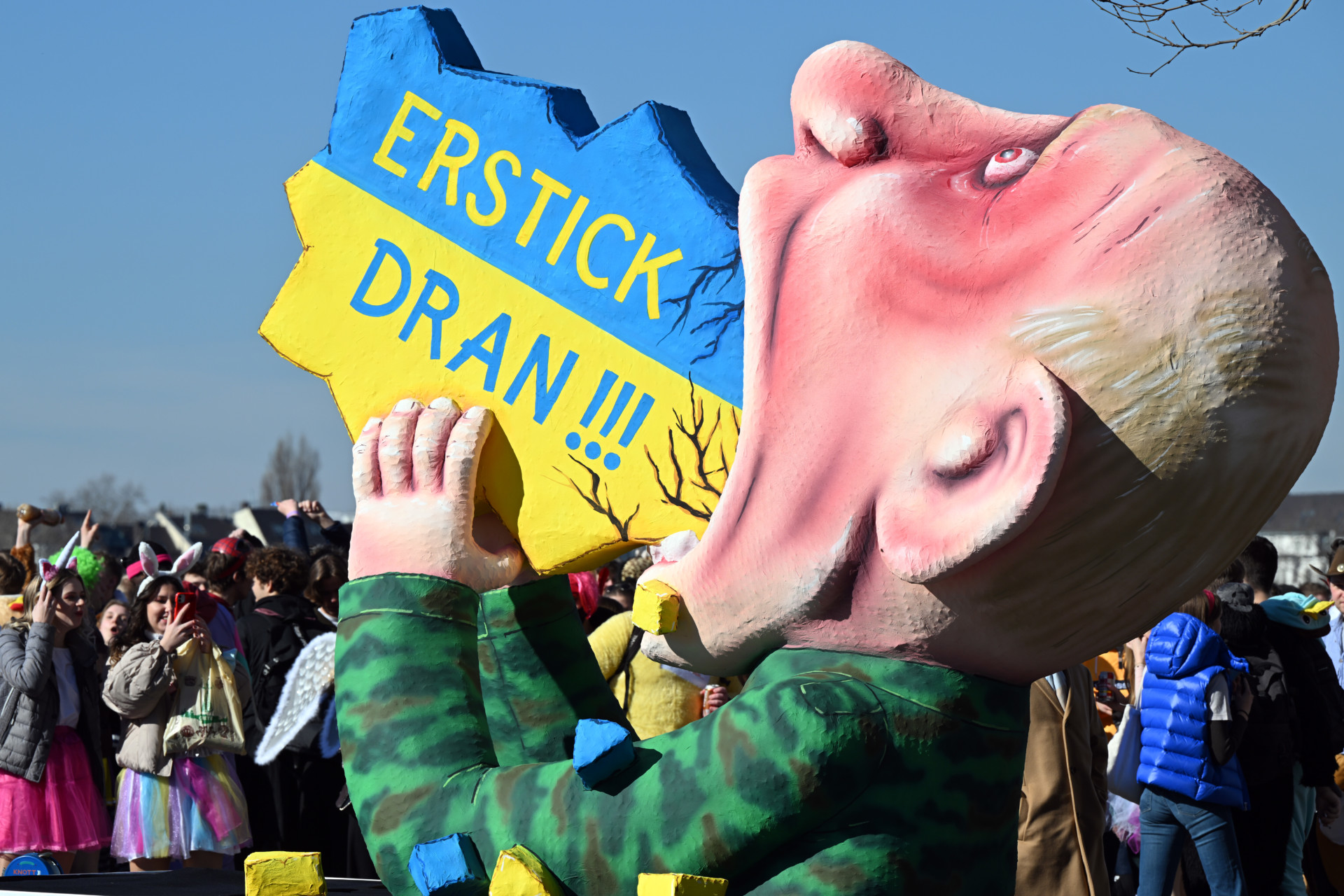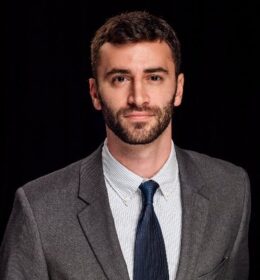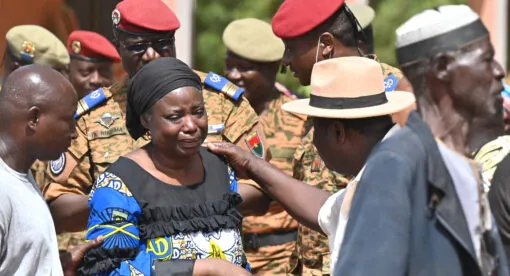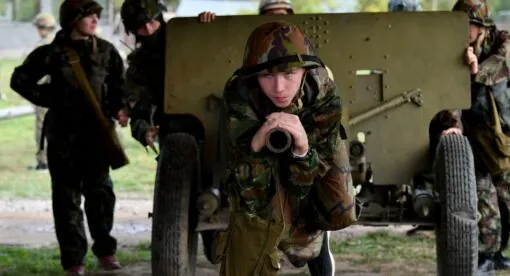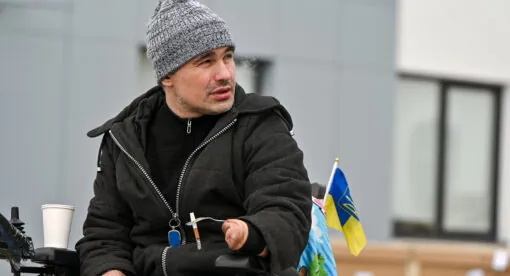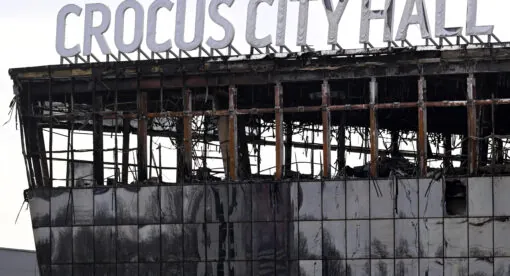As Russia continues its full-scale assault on Ukraine, various strategic elements will be instrumental in shaping the military and broader political evolution of the conflict. These elements are centered within three primary theaters: the military conflict in Ukraine, the political situation in Russia, and the Western and global reaction to this conflict. With Russia’s war of aggression threatening human security in Ukraine and the broader region, it is imperative for the United States and its allies to work together to ensure the protection against human rights abuses and territorial violations while promoting efforts aimed at long-lasting stability.
First, regarding the military conflict in Ukraine, Russia has faced significant and likely unexpected levels of resistance from the Ukrainian military to the campaign that Russian President Vladimir Putin launched Feb. 24 for the “de-militarization and de-Nazification” of the Ukrainian state. While Russian forces have made advances and seized territory in the northern, eastern, and southern sections of the country, Russia has not been able to completely degrade Ukraine’s military capabilities, nor has it been able to hold any major Ukrainian cities. As of this writing, Ukraine’s government led by President Volodymyr Zelenskyy remains intact, with Ukrainians and Western countries rallying in their support for it.
That being said, Russia still has a large number of forces at its disposal, and it has largely limited its military operations to target key infrastructure and generally avoid large-scale raids and accompanying civilian casualties in major urban areas like Kyiv, Kharkiv, and Odessa. Russia may decide to go for a larger assault on such cities, and it certainly has the military capabilities to immediately ramp up such operations if it so chooses.
However, this is where the political situation within Russia becomes important. Putin has presented the conflict in Ukraine as a “special military operation” with specific objectives and has avoided calling it a war. This has likely contributed to poor Russian operational performance on the ground, as the vague objective and undefined aims in Ukraine have puzzled a lot of Russian commanders and have created a gray zone for Russian personnel in Ukraine in terms of what to target and how to engage with civilian resistance. There have already been some trickles of dissent and some demonstrations against Russia’s actions in Ukraine in several Russian cities, though these have been relatively small and manageable for security forces. But were Russia to expand its conflict in Ukraine to an all-out, Chechnya-style assault and casualties on both the Russian and Ukrainian sides were to grow significantly, this could risk escalating such dissent both within Russian society and, more importantly, among government officials and business leaders, potentially threatening Putin’s political position.
Such dynamics are likely driving the current position of the Kremlin, with a Russian delegation holding the initial cease-fire talks with their Ukrainian counterparts on Feb. 28. Putin placed Russia’s nuclear deterrent forces on high alert the previous day; moreover, Moscow’s ally Belarus has passed a constitutional referendum allowing the positioning of Russian nuclear weapons on Belarusian territory. Each of these dynamics suggests that Russia is concerned with the state of play on the ground in Ukraine and of the broader dynamics of Western support, with Moscow showing willingness to get back to the diplomatic table while also playing the nuclear card.
Finally, the Western and global reaction to the conflict will be key in shaping its evolution. The West has increased its support for Ukraine in the form of weapons and security aid from each of the NATO countries. In the meantime, the U.S., EU and other allied countries like Japan have taken unprecedented measures to pressure Russia, including cutting off several Russian banks from the SWIFT financial system and targeting the Russian central bank directly with sanctions. Russia’s economy has taken a nose-dive, and this in turn could increase domestic political pressure, but such measures are also having global economic ripple effects. The extent to which Putin is willing to endure such consequences will likewise impact his decision-making on the battlefield and in hybrid arenas like the cybersphere.
A key player moving forward will be China, the only significant power to have good relations with both Russia and Ukraine and to hold true leverage over Moscow’s decision making. So far, Beijing has broadly supported Moscow, speaking out against sanctions and calling for the U.S. and NATO to respect Russia’s security interests. However, China has also advocated for a diplomatic resolution to the conflict and was a key player in persuading Russia to hold the initial talks in Ukraine. With Western and Russian military forces concentrating their manpower in Europe and Beijing serving as an economic lifeline for Moscow amid its growing political isolation, China could stand to benefit strategically in more ways than one, though Beijing is certainly not immune from broader global economic risks the longer the conflict drags on.
With the situation in Ukraine remaining fluid and the war in its early days, the conflict could go in one of several strategic directions. The negotiating front has been re-opened to create the room for diplomatic offramps between Moscow, the West, and Beijing, but there is also the chance for Russia to escalate matters militarily in Ukraine and elsewhere in the European theater, as Belarus and NATO states become increasingly involved in the conflict. What is clear, however, is that Russia’s invasion of Ukraine has transformed the entire security architecture of Europe and will have political, economic, and security effects well beyond.
Eugene Chausovsky is a Nonresident Fellow with the New Lines Institute. Previously, he served as Senior Eurasia Analyst at Stratfor for 10 years. His work focuses on political, economic, and security issues pertaining to the former Soviet Union, Europe, and Latin America. He tweets at @EugeneChausovsk.
The views expressed in this article are those of the author and not an official policy or position of the Newlines Institute.

